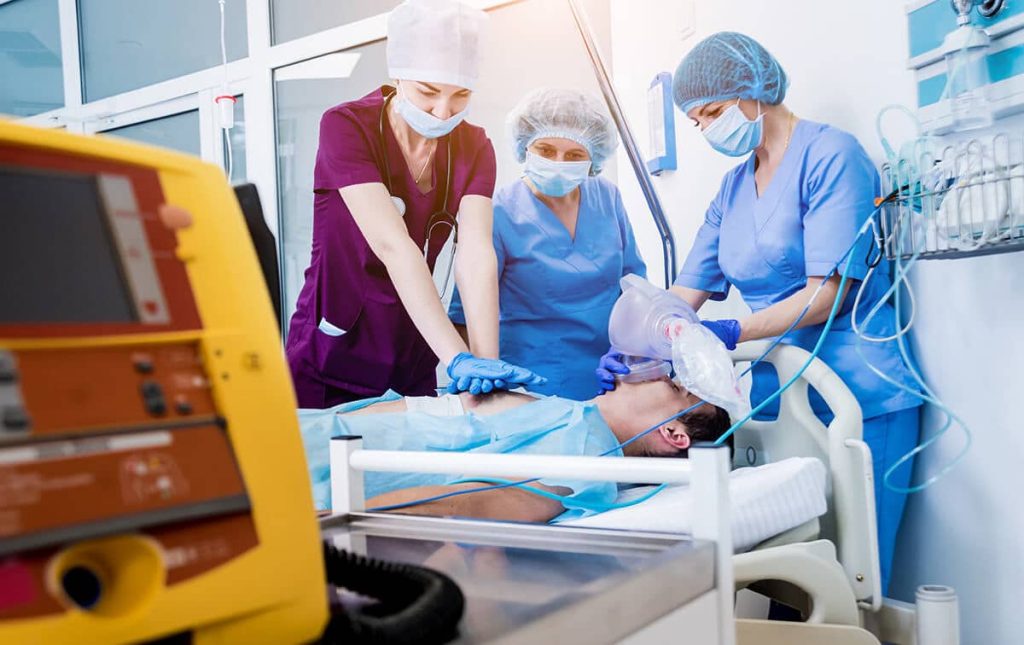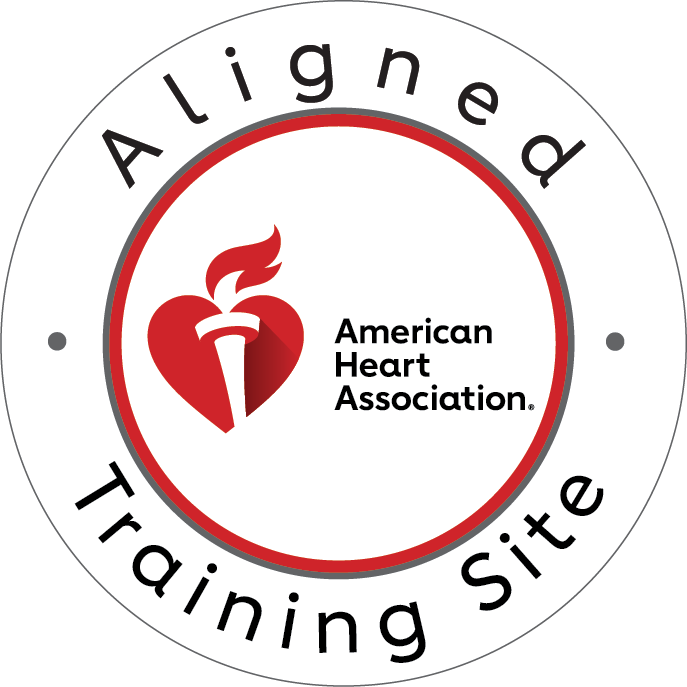I. Unlocking the Secrets of ACLS
In the realm of healthcare, acronyms are frequently used to convey complex concepts succinctly. One such acronym that holds significant importance in emergency medicine is ACLS, which stands for Advanced Cardiovascular Life Support. Understanding what ACLS entails is crucial for healthcare professionals who are often on the front lines of saving lives in critical situations.
ACLS represents a set of clinical interventions for the urgent treatment of cardiac arrest, stroke, and other life-threatening medical emergencies. It also includes the knowledge and skills needed to deploy these interventions effectively. The primary goal of ACLS is to improve patient outcomes by applying advanced life-saving techniques promptly and efficiently.
As medical emergencies can occur without warning, having a team of healthcare providers trained in ACLS can make a substantial difference in survival and recovery rates. This article delves into the meaning of ACLS, its purpose, components, training, and practical applications, offering a comprehensive understanding of its vital role in healthcare.
II. Decoding ACLS: What It Means
Definition of ACLS
ACLS stands for Advanced Cardiovascular Life Support. To fully grasp its significance, let’s break down each component of the ACLS acronym:
- Advanced: This indicates the high-level skills and in-depth knowledge required to administer ACLS. It involves complex medical interventions and decision-making processes beyond basic first aid or Basic Life Support (BLS).
- Cardiovascular: This refers to the heart (cardio) and blood vessels (vascular), highlighting that ACLS primarily deals with emergencies related to these critical components of the circulatory system.
- Life Support: This underscores the essence of ACLS, which is to provide immediate and critical care interventions to sustain life during emergencies, such as cardiac arrest or severe heart attacks.
ACLS is more than just a set of procedures; it embodies a comprehensive approach to handling cardiac emergencies. This includes recognizing signs of a severe cardiovascular event, managing the patient’s airway, breathing, and circulation, and performing early defibrillation and advanced resuscitation techniques.
III. The Purpose and Importance of ACLS
Why ACLS Matters
The primary objective of ACLS is to enhance the chances of survival and recovery for patients experiencing severe cardiac events. Here’s a closer look at its core goals:
- Immediate Response: ACLS provides a framework for healthcare professionals to respond quickly and effectively to cardiac emergencies. Speed is critical in these situations, as every second counts.
- Improved Outcomes: Studies have shown that timely and appropriate ACLS interventions significantly improve patient outcomes, reducing mortality rates and enhancing recovery prospects.
- Comprehensive Care: ACLS encompasses a wide range of interventions, from chest compressions and defibrillation to medication administration and advanced airway management, ensuring that patients receive holistic care.
By equipping healthcare providers with the necessary skills and knowledge, ACLS aims to minimize the time between the onset of a cardiac event and the delivery of critical care. This swift intervention can be the difference between life and death, making ACLS an indispensable component of emergency medicine.
Understanding the depth and scope of ACLS is crucial for anyone involved in emergency healthcare, as it prepares them to handle some of the most urgent and life-threatening situations with confidence and competence.
IV. The Building Blocks of ACLS
Components of ACLS
ACLS is a multifaceted approach that combines various techniques and tools to manage cardiac emergencies effectively. Here’s a detailed breakdown of its key components:
- Basic Life Support (BLS) Foundation: ACLS builds on the principles of BLS, which includes CPR (Cardiopulmonary Resuscitation) and the use of Automated External Defibrillators (AEDs). Mastery of BLS is essential as it forms the bedrock of all ACLS interventions.
- Advanced Airway Management: Proper airway management ensures that patients receive adequate oxygenation and ventilation. Techniques range from the use of bag-valve masks to more advanced procedures like endotracheal intubation.
- Pharmacology in ACLS: Medications play a crucial role in ACLS. Drugs such as epinephrine, amiodarone, and atropine are used to manage cardiac arrest and other severe cardiac conditions. Understanding the indications, dosages, and administration of these medications is vital.
- Defibrillation and Synchronized Cardioversion: Electrical therapy is a cornerstone of ACLS. Defibrillation is used to treat life-threatening arrhythmias like ventricular fibrillation, while synchronized cardioversion is used for less severe arrhythmias such as atrial fibrillation.
- Cardiac Rhythm Interpretation: Accurate interpretation of cardiac rhythms is essential for determining the appropriate ACLS interventions. This involves recognizing and understanding various arrhythmias and their implications.
- Post-Cardiac Arrest Care: Once a patient has been resuscitated, post-cardiac arrest care focuses on stabilizing the patient, preventing recurrence, and addressing the underlying cause of the cardiac event. This includes targeted temperature management, advanced airway management, and ongoing monitoring.
V. The Path to Certification: Training for ACLS
ACLS Training and Certification
Achieving ACLS certification involves a rigorous training process designed to equip healthcare providers with the necessary skills and knowledge. Here’s an overview of what the process entails:
- Eligibility and Prerequisites: Typically, healthcare professionals such as doctors, nurses, paramedics, and EMTs are eligible for ACLS training. Basic Life Support (BLS) certification is usually a prerequisite.
- Course Structure and Content: ACLS courses are structured to provide both theoretical knowledge and practical skills. This includes:
- Classroom-Based Learning: Participants engage in lectures and discussions to understand the theoretical aspects of ACLS.
- Hands-On Practice Sessions: Practical sessions involve hands-on practice with mannequins and simulation equipment to master the physical skills required.
- Use of Simulations: Simulated scenarios are used to replicate real-life cardiac emergencies, allowing participants to apply their knowledge and skills in a controlled environment.
- Recertification and Continuing Education: ACLS certification is not a one-time process. Healthcare providers must regularly renew their certification, typically every two years, to ensure they stay updated with the latest guidelines and techniques. Continuing education is also encouraged to maintain proficiency.
ACLS training is comprehensive and demanding, reflecting the critical nature of the skills and knowledge it imparts. By completing this training, healthcare providers are better prepared to manage cardiac emergencies and improve patient outcomes effectively.
VI. On the Front Lines: Practical Applications of ACLS
Real-World Scenarios for ACLS
ACLS is indispensable in various critical scenarios where immediate and effective medical intervention can save lives. Here are some key situations where ACLS is applied:
- Cardiac Arrest: One of the most urgent applications of ACLS is in the case of cardiac arrest. Rapid identification and initiation of CPR, defibrillation, and advanced airway management are crucial for survival.
- Stroke: ACLS protocols include recognizing the signs and symptoms of a stroke, administering appropriate medications, and ensuring timely transport to a facility equipped to handle stroke patients.
- Acute Coronary Syndrome (ACS): ACLS covers the management of ACS, including heart attacks. This involves the use of medications like aspirin and nitroglycerin, along with advanced interventions to restore blood flow to the heart.
- Life-Threatening Arrhythmias: Conditions such as ventricular fibrillation, ventricular tachycardia, and atrial fibrillation require ACLS protocols for appropriate management. This includes electrical therapies like defibrillation and cardioversion, as well as pharmacological treatments.
Each scenario requires a different set of skills and knowledge, underscoring the breadth and depth of ACLS training.
VII. Who Needs ACLS Certification?
Healthcare Professionals Benefiting from ACLS
ACLS certification is essential for a wide range of healthcare providers. Here are some of the professionals who typically require this certification and the benefits it offers them:
- Paramedics and EMTs: These first responders are often the first on the scene in medical emergencies. ACLS certification equips them with the skills needed to stabilize patients before they reach the hospital.
- Nurses: Nurses in emergency departments, intensive care units, and other critical care settings benefit significantly from ACLS training, enabling them to provide advanced care and support during cardiac emergencies.
- Physicians: Doctors, especially those working in emergency medicine, cardiology, and critical care, require ACLS certification to manage and oversee the treatment of patients with severe cardiovascular conditions.
- Respiratory Therapists: These professionals play a key role in managing airway and breathing during cardiac emergencies, making ACLS training crucial for their roles.
Benefits of ACLS Certification
- Enhanced Competence: ACLS certification ensures healthcare providers are competent in managing cardiac emergencies, improving their confidence and effectiveness.
- Improved Patient Care: With ACLS training, providers can offer a higher level of care, increasing the chances of positive outcomes for patients experiencing life-threatening cardiac events.
- Professional Development: ACLS certification is often a requirement for career advancement in many healthcare roles, reflecting a provider’s dedication to maintaining high standards of clinical competence.
VIII. Conclusion and Call to Action
Why ACLS Matters: A Recap
Understanding what ACLS stands for and its significance is crucial for anyone involved in emergency healthcare. ACLS encompasses a comprehensive set of skills and knowledge designed to improve patient outcomes during cardiac emergencies. From its foundational principles to advanced interventions, ACLS plays a vital role in saving lives and enhancing the quality of care provided in critical situations.
Healthcare providers who pursue ACLS certification not only enhance their skills but also contribute to a higher standard of care in their workplaces. The impact of ACLS on patient survival and recovery underscores its importance, making it an essential aspect of modern medical training and practice.
Enroll in CPR and ACLS Certification in Tampa
If you are a healthcare provider in Tampa, now is the perfect time to advance your skills and certification. CPR Classes Tampa, an American Heart Association training site, offers initial certifications and renewals in BLS for Healthcare Providers, ACLS, PALS, and CPR and First Aid courses.
Why Choose CPR Classes Tampa?
- Stress-Free Learning Environment: All classes are designed to be hands-on and stress-free, ensuring you gain practical skills and confidence.
- Comprehensive Training: From basic life support to advanced cardiovascular life support, our courses cover all essential areas.
- Top-Rated Training Site: Recognized as the best CPR certification in Tampa, our training programs are highly regarded.
By enrolling in CPR certification in Tampa and ACLS certification in Tampa, you are taking a significant step towards enhancing your professional skills and improving patient care outcomes. Don’t wait—advance your career and be prepared to save lives by signing up for a course today.





